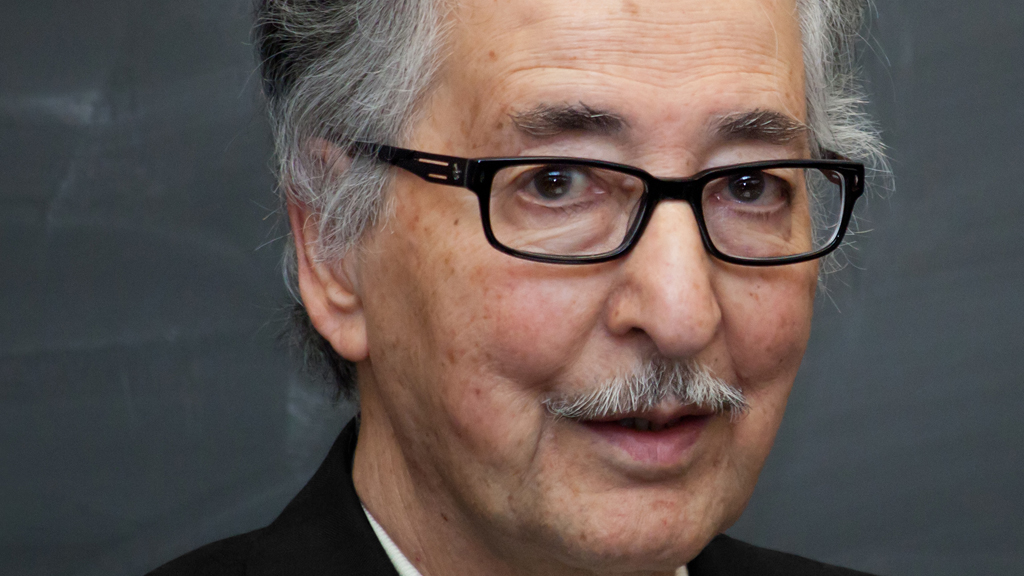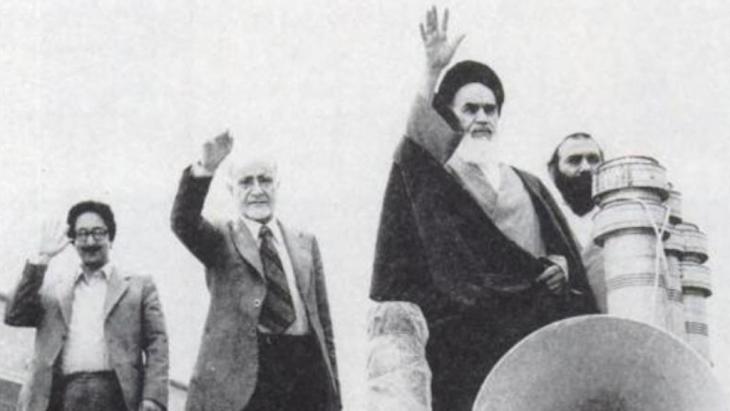Selling the revolution on

Dr. Banisadr, 35 years have passed since you left Iran. Looking back at all the efforts and activities you have undertaken in your struggle against the Iranian regime since that time, what do you feel you've achieved?
Abolhassan Banisadr: When I left Iran, I said in my first interview that I went into exile to expose the organic relations between Khomeinism and Reaganism. I still receive a great deal of information from Iran. My activities include clarifying the balance of power in Iran and the use of organised terrorism there, which was thoroughly investigated in the Mykonos trial. I uncovered two international scandals between the mullah regime and Western powers: an October surprise [Ed: the Reagan campaign made a secret deal with the Iranian government whereby the Iranians would hold the hostages at the American Embassy in Tehran until after Reagan was elected and inaugurated] and Irangate. The secret negotiations between Iran and the USA were thus made public.
What do you have to say about the current developments in Iran? President Hassan Rouhani is doing his best to improve relations with the rest of the world...
Banisadr: Iran's relations with the world can be summed up in two words: conflict and compromise. Conflicts on the surface and compromises behind closed doors. This regime has subjected its people to quite a few crises. The most significant were the continuation of the war against Iraq, terrorism that led to Europe breaking off relations with Iran and the nuclear crisis.
What is your view of the Iranian nuclear programme and the nuclear treaty?

Banisadr: The nuclear treaty is unprecedented in the history of Iran and the entire world. Iran's president says that it's not a treaty because they did not sign anything. The Supreme Leader blames the Iranian parliament for the whole thing. And the parliament says that it is not responsible. [Ed: Parliament approved the agreement.] From a legal point of view, the treaty gives rise to 105 commitments between Iran and the negotiating countries. My friends and I have informed the citizens about these concessions.
The hardliners likewise criticise Rouhani's government for the treaty.
Banisadr: They criticise Rouhani, because the real responsibility lies with the Supreme Leader. According to the Iranian constitution, the Supreme Leader is the one who establishes the political line taken in domestic and foreign policy. The critics are thus trying to blame Rouhani in order to keep Khamenei's name out of the debate on the nuclear treaty. Khamenei himself has repeatedly tried to make it appear as though the major responsibility for the agreement lies with Rouhani's government. My associates and I have shown how the treaty is causing Iran to forfeit its independence. Yet at the same time, it is also allowing the regime to stabilise its existence for the time being.
You have a wide-ranging communications network. How much influence do you think you have on critics of the regime?
Banisadr: Subjectively speaking, we have great influence. We are doing what we can to support the people's rights. The effects can be seen in how people in Iran are much more committed to their civil rights than in the past. Our clarification of the 105 provisions of the nuclear treaty has been used by the regime's own media. [embed:render:embedded:node:17553]Some of those endorsing the treaty have even noted that Banisadr's opinion on the treaty as published abroad has been repeated and spread within the country.
You are well-known among the revolutionary generation. What are you doing to make yourself better known among Iran's younger generation?
Banisadr: We have a weekly television show and a weekly radio interview. We also operate a website. I have no objective evidence, but I think that the fact that civil rights are now a more frequent topic of discussion at Iranian universities demonstrates that the younger generations in Iran are getting our message. Lately, we've been seeing more young people attending our events. That shows that they're interested. However, it is also noticeable that when these young people come here after living in Iran's closed society, they are often disgusted by politics initially.
What is the most important thing you have accomplished thus far?
Banisadr: I think that an exchange of opinions is of tremendous importance. I've spent four-fifths of my life trying to explain to people the importance of independence and freedom. People need guiding principles to liberate themselves from the power of those who rule. We have a long history of oppression in Iran. No matter how much we are already doing, we need to do more. The most important work in Iran today is to keep spreading the guiding principles of independence and freedom.
Iran is at risk, both politically and economically: its independence and freedom are at risk. And Iran's natural environment is being turned into a desert. I hope that the Iranians will campaign more persistently than ever before for their civil rights.
Interview conducted by Mahindokht Mesbah
© Iran Journal 2017
Translated from the German by Jennifer Taylor
